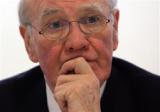
Dr Pedrick-Friend - my Labour opposite number at the election, had a letter published in the Herald Express today entitled "Labour inherited economic meltdown" unsurprisingly full of inacurracies and errors.
Firstly, far from being 'in meltdown' in 1997 Britain was the most competitive and fastest growing economy in Europe with low tax, low Government borrowing and fully funded private sector pensions.
Clearly David's doctorate is not in economics - his statement 'the treasury lost over three billion (on Black Wednesday) ... which could have been used to build schools and hospitals' is completely wrong.
Sure, if the government had maintained $24bn foreign currency reserves (ie not sold sterling) that day, and the pound had fallen by the same amount, the UK would have made a 'paper' £2.4bn profit on sterling's devaluation. But it makes no difference to the Governments spending ability in Britain, either way.
As it happens Chancellor Gordon Brown has lost much more by selling 60% of our gold reserves between 1999 and 1992 raising £2.1bn for gold that would be now worth £4.5 bn - real money that really could have been spent on UK hospitals and schools.
But if Mr Pedrick Friend wants to compare facts, how about these:
ONS figures show the total of people out of work rose to 1.61 million in April. Overall the level of people 'economically inactive' has reached a record 7.9 million, the highest number since records began in 1971.
OECD figures show British productivity is now languishing behind that of both the EU and the US.
According to the ONS the UK's current account deficit grew to £31.9 billion in 2005, the highest on record in cash terms.
Gordon Brown is now running a budget deficit of 3.2% of GDP and earlier this year the European Commission stepped in to call for the chancellor to rein in his spending.
One in five British employees is working for the Government, 9/10 of whom are members of taxpayer-backed, index-linked, final-salary schemes. One expert, Stephen Yeo of consulting firm Watson Wyatt, estimates the government's (unfunded) liability for public-sector pensions comes to a staggering £30,000 per UK household.
There have been 80 new taxes since Gordon Brown took over. Figures produced by the OECD show that the UK's tax revenues are set to hit 42.7% of GDP this year, up from 40.7% in 1999 (and below 39% under the Conservatives).
Britain's personal debt is increasing by £1,000,000 every four minutes. According to the Council of Mortgage Lenders total household debt has grown sharply as a percentage of disposable income over the past decade - the unsecured debt to income ratio was almost double that of 1995. According to a recent Financial Services Authority (FSA) report 14 million adults (35%) are relying on their overdrafts to get by each month; 3.5m are permanently overdrawn, while two million workers start the month in their overdraft, even after they have been paid.
New Labour have squandered the economic legacy of low Government borrowing, low tax and high productivity they inherited in 1997. Bit by bit the country and most of it's citizens have used up their reserves and for the last few years have been surviving on borrowed money.
There is going to be a long hangover to sort out the national finances and George Osbourne is absolutely right not to promise early tax cuts under even these circumstances, let alone those that might face an incoming Conservative Government in three years time.
I fear the complete reverse of Dr Pedrick Friends comment- that it may in fact be Conservatives who inherit Labours economic meltdown.













.jpg)


